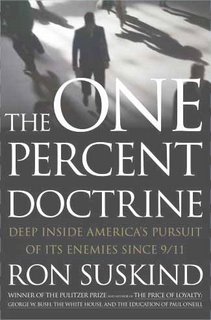 I was impressed with Ron Suskind's book, The Price Of Loyalty, on former treasury secretary Paul O'Neill's experience in the Bush Administration. Suskind's new release, The One Percent Doctrine, transports the reader into the disturbing universe of Bush, Cheney, and their bungled war on terror. Barton Gellman, who reports on intelligence and national security for WaPo, reviewed Suskind's "important book" today in, The Shadow War, In a Surprising New Light:
I was impressed with Ron Suskind's book, The Price Of Loyalty, on former treasury secretary Paul O'Neill's experience in the Bush Administration. Suskind's new release, The One Percent Doctrine, transports the reader into the disturbing universe of Bush, Cheney, and their bungled war on terror. Barton Gellman, who reports on intelligence and national security for WaPo, reviewed Suskind's "important book" today in, The Shadow War, In a Surprising New Light:
"The One Percent Doctrine" takes its title from an episode in late November 2001. Amid fears of a "second wave" attack after 9/11, Tenet laid out for Vice President Cheney and national security adviser Condoleezza Rice a stunning trove of new intelligence, much of which Suskind reveals for the first time: Two Pakistani scientists who previously offered to help Libya build a nuclear bomb were known to have met with Osama bin Laden. (Later, Suskind reports, the U.S. government would discover that bin Laden asked pointedly what his next steps should be if he already possessed enriched uranium.) Cheney, by Suskind's account, had been grappling with how to think about "a low-probability, high-impact event." By the time the briefing was over, he had his answer: "If there's a one percent chance that Pakistani scientists are helping al Qaeda build or develop a nuclear weapon, we have to treat it as a certainty in terms of our response."
This "Cheney Doctrine" let Bush evade analytic debate, Suskind writes, and "rely on impulse and improvisation to a degree that was without precedent for a modern president." But that approach constricted the mission of the intelligence and counterterrorism professionals whose point of view dominates this book. Many of them came to believe, Suskind reports, that "their jobs were not to help shape policy, but to affirm it." (Some of them nicknamed Cheney "Edgar," as in Edgar Bergen -- casting the president as the ventriloquist's dummy.) Suskind calls those career terror-fighters "the invisibles," and he likes them. His book is full of amazing, persuasively detailed vignettes about their world. At least a dozen former intelligence officials speak frankly in public here...
Suskind's enterprise has turned up several scoops, including the important disclosure that First Data Corp., among the largest processors of credit-card transactions, began to give the FBI access to its records after Sept. 11, 2001. Suskind's account is fuzzy on some of the legal questions, but he argues that the operation " swept up the suspicious, or simply the unfortunate, by the stadiumful and caught almost no one who was actually a danger to America." (Emphasis added.)And these were the guys who America entrusted (not all of us) to get the serious job of national security done? As the Terrorism Index findings indicate, the Bush Administration has failed miserably. Suskind's narrative about a "a mud-caked head" that allegedly belonged to Ayman al-Zawahiri, al-Qaeda's second in command, reveals an aspect of Bush that's Stephen King macabre (as if we didn't know):
Bush, who was tracking the transaction, reportedly told a briefer -- "half in jest," Suskind writes -- that "if it turns out to be Zawahiri's head, I hope you'll bring it here."What on earth for? Don't psychopaths collect body parts and relics as souvenirs to relive their adrenline-pumping accomplishments? Et tu, Bush?
Most revealing, for I have long thought incurious George dropped the ball in preventing 9/11, comes the story that demonstrates the preznit couldn't be bothered with his duties as Commander-in-Chief (unless it involved playing dress-up) in protecting the American people:
The book's opening anecdote tells of an unnamed CIA briefer who flew to Bush's Texas ranch during the scary summer of 2001, amid a flurry of reports of a pending al-Qaeda attack, to call the president's attention personally to the now-famous Aug. 6, 2001, memo titled "Bin Ladin Determined to Strike in US." Bush reportedly heard the briefer out and replied: "All right. You've covered your ass, now."Ass? The butt in this story is the arrogant, hardhearted resident of the Oval Office.
After the capture of Abu Zubaydah, thought to be al-Qaeda's chief of operations, in Pakistan in March 2002, the jihadist was shipped to an off-shore secret prison:
Abu Zubaydah, his captors discovered, turned out to be mentally ill and nothing like the pivotal figure they supposed him to be. CIA and FBI analysts, poring over a diary he kept for more than a decade, found entries "in the voice of three people: Hani 1, Hani 2, and Hani 3" -- a boy, a young man and a middle-aged alter ego. All three recorded in numbing detail "what people ate, or wore, or trifling things they said." Dan Coleman, then the FBI's top al-Qaeda analyst, told a senior bureau official, "This guy is insane, certifiable, split personality."
Abu Zubaydah also appeared to know nothing about terrorist operations; rather, he was al-Qaeda's go-to guy for minor logistics -- travel for wives and children and the like. That judgment was "echoed at the top of CIA and was, of course, briefed to the President and Vice President," Suskind writes. And yet somehow, in a speech delivered two weeks later, President Bush portrayed Abu Zubaydah as "one of the top operatives plotting and planning death and destruction on the United States." And over the months to come, under White House and Justice Department direction, the CIA would make him its first test subject for harsh interrogation techniques.Great. So our intelligence community tortured a mentally-ill gopher for what? To serve at the pleasure of the preznit? For shits and giggles? The torture of Zubaydah could lead one to think so. Suskind interviewed intel officers to conclude that, "Bush ensnared his director of central intelligence at the time, George J. Tenet, and many others in a new kind of war in which action and evidence were consciously divorced." During one of his daily briefings on Zubaydah with George Tenet, Bush told him:
"I said he was important"... "You're not going to let me lose face on this, are you?" "No sir, Mr. President," Tenet replied. Bush "was fixated on how to get Zubaydah to tell us the truth," Suskind writes, and he asked one briefer, "Do some of these harsh methods really work?" Interrogators did their best to find out, Suskind reports. They strapped Abu Zubaydah to a water-board, which reproduces the agony of drowning. They threatened him with certain death. They withheld medication. They bombarded him with deafening noise and harsh lights, depriving him of sleep. Under that duress, he began to speak of plots of every variety -- against shopping malls, banks, supermarkets, water systems, nuclear plants, apartment buildings, the Brooklyn Bridge, the Statue of Liberty. With each new tale, "thousands of uniformed men and women raced in a panic to each . . . target." And so, Suskind writes, "the United States would torture a mentally disturbed man and then leap, screaming, at every word he uttered."Unbelievable! Expending valuable personnel to follow up on the ravings of a tortured mad man. Not only is Codpiece the most incompetent president in my lifetime, but with these new accounts of sending intel assets and law enforcement on wild goose chases, I have no doubt that the Marquis de Bush relished every minute of his power as the POTUS in lording over his subordinates and the weak. May God help him.
Suskind's book quickens my impatience and concern for us all. Jan. 20, 2009, can't come fast enough for me.








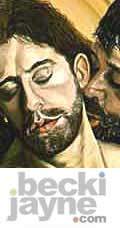
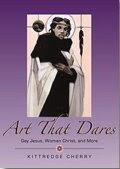
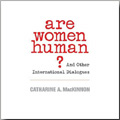
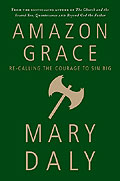
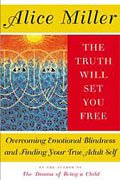








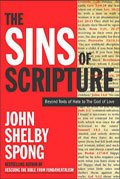

|